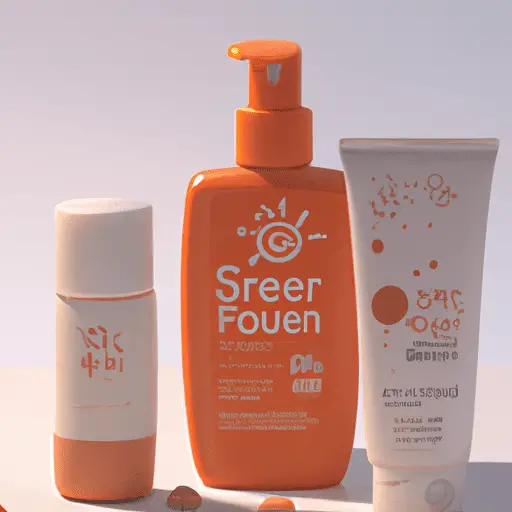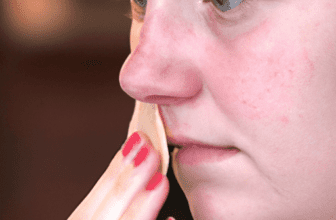How to Choose the Right Sunscreen for Your Skin
-
Table of Contents
- How to Choose the Right Sunscreen for Your Skin
- Key Takeaways
- Introduction: The Importance of Sunscreen Selection
- Understanding Your Skin Type
- Considering SPF, Broad-Spectrum Protection, and Water Resistance
- Checking the Ingredients
- Applying and Reapplying Sunscreen
- FAQ Section
- 1. Can I use the same sunscreen for my face and body?
- 2. Can I just use makeup with SPF instead of sunscreen?
- 3. Is sunscreen necessary on cloudy days?
- 4. Can I use sunscreen on my baby?
- 5. Does sunscreen expire?
- Conclusion: Protecting Your Skin with the Right Sunscreen
- Key Takeaways Revisited
How to Choose the Right Sunscreen for Your Skin

[youtubomatic_search]
Key Takeaways
- Understanding your skin type is crucial in choosing the right sunscreen.
- SPF rating, broad-spectrum protection, and water resistance are important factors to consider.
- Ingredients in sunscreen can affect its effectiveness and your skin’s reaction.
- Application and reapplication of sunscreen are as important as the product itself.
- Consulting a dermatologist can provide personalized advice on sunscreen selection.
Introduction: The Importance of Sunscreen Selection
With the increasing awareness of skin cancer and premature skin aging, the use of sunscreen has become a crucial part of daily skincare routines. However, not all sunscreens are created equal. Choosing the right sunscreen for your skin type and lifestyle can make a significant difference in providing effective protection against harmful UV rays. This article will guide you through the process of selecting the right sunscreen, considering factors such as skin type, SPF rating, ingredients, and application methods.
Understanding Your Skin Type
Knowing your skin type is the first step in choosing the right sunscreen. For instance, if you have oily skin, you might want to opt for a lightweight, oil-free sunscreen that won’t clog your pores. On the other hand, if you have dry skin, a moisturizing sunscreen with hydrating ingredients like hyaluronic acid would be beneficial. For sensitive skin, look for sunscreens that are fragrance-free and contain soothing ingredients like aloe vera or chamomile.
Considering SPF, Broad-Spectrum Protection, and Water Resistance
The Sun Protection Factor (SPF) rating indicates how well a sunscreen protects against UVB rays, which are primarily responsible for sunburn. Dermatologists recommend using a sunscreen with an SPF of at least 30, which blocks 97% of UVB rays. However, it’s also important to choose a sunscreen that offers broad-spectrum protection, meaning it protects against both UVA and UVB rays. UVA rays can prematurely age your skin, causing wrinkles and age spots. If you’re going to be swimming or sweating, a water-resistant sunscreen is a must.
Checking the Ingredients
The ingredients in a sunscreen can affect both its effectiveness and how it reacts with your skin. For example, some people may be allergic to certain chemical sunscreens, which can cause skin irritation. In such cases, mineral sunscreens containing zinc oxide or titanium dioxide would be a safer choice. Additionally, some sunscreens contain antioxidants like vitamin C and E, which can provide additional protection against free radicals.
Applying and Reapplying Sunscreen
Even the best sunscreen won’t provide adequate protection if not applied correctly. As a rule of thumb, you should apply sunscreen 15 to 30 minutes before going outside and reapply every two hours, or immediately after swimming or sweating. It’s also important to apply a sufficient amount of sunscreen. According to the American Academy of Dermatology, most people only apply 25-50% of the recommended amount of sunscreen.
FAQ Section
1. Can I use the same sunscreen for my face and body?
While you can use the same sunscreen for both face and body, some people prefer using a separate facial sunscreen as they can be formulated to be lighter and less greasy.
2. Can I just use makeup with SPF instead of sunscreen?
Makeup with SPF can provide some protection, but it’s usually not enough on its own. It’s best to apply a broad-spectrum sunscreen under your makeup.
3. Is sunscreen necessary on cloudy days?
Yes, up to 80% of UV rays can penetrate through clouds, so it’s important to wear sunscreen even on cloudy days.
4. Can I use sunscreen on my baby?
For babies under 6 months, it’s best to avoid sun exposure and use protective clothing. For older babies and toddlers, use a sunscreen suitable for children with a high SPF.
5. Does sunscreen expire?
Yes, most sunscreens have an expiration date after which they may not be as effective. It’s generally recommended to replace your sunscreen every year.
Conclusion: Protecting Your Skin with the Right Sunscreen
Choosing the right sunscreen is a crucial part of skin protection. By understanding your skin type, considering factors like SPF, broad-spectrum protection, and water resistance, checking the ingredients, and applying sunscreen correctly, you can ensure that your skin is well-protected against harmful UV rays. Remember, when in doubt, it’s always best to consult a dermatologist for personalized advice.
Key Takeaways Revisited
- Understanding your skin type is the first step in choosing the right sunscreen.
- Look for a sunscreen with an SPF of at least 30, broad-spectrum protection, and water resistance.
- Check the ingredients to ensure the sunscreen is suitable for your skin and provides effective protection.
- Apply sunscreen correctly and reapply every two hours, or immediately after swimming or sweating.
- When in doubt, consult a dermatologist for personalized advice.
[youtubomatic_search]
Tags: Loading...





